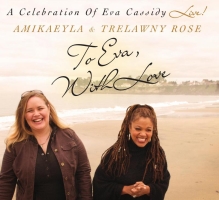Home » Jazz Articles » Extended Analysis » Aretha Franklin: Take a Look: Aretha Franklin Complete on Columbia
Aretha Franklin: Take a Look: Aretha Franklin Complete on Columbia
 Aretha Franklin
Aretha FranklinTake a Look: Aretha Franklin Complete on Columbia
Columbia
2011
Were we to limit our musical intelligence gathering to banal "classic rock" radio, we would believe that singer Aretha Franklin's career began in 1967, that she only recorded one song, Otis Redding's "Respect," and recorded for a single label, Atlantic. All these assumptions are light years from accurate as evidenced by Take a Look: Aretha Franklin Complete on Columbia. At Columbia, Franklin lived an entirely different musical life than she would at Atlantic, one that was grounded in jazz and the Great American Songbook, revealing a gigantic vocal talent that betrayed potent hints of the tectonic soul shift to come at Atlantic.
It takes precious little imagination to conclude that Franklin was as important to American music in the middle-to-late 1960s as singer/pianist Ray Charles was the decade before, the two star ascents crossing in creative eclipse. Franklin gave potent voice to women in the soul and rock arenas, enabling the flourishing of the Tina Turner, Janet Jackson and Jennifer Hudson generations. Her parallel to Charles is not incidental, sharing the visions of Jerry Wexler and Ahmet Ertegun, the operators of the Atlantic musical collider that mashed up gospel and the blues, creating r&b and soul.
But Franklin had a hefty musical career before she was crowned the "Queen of Soul" by an un-named MC in 1965. Before Atlantic Records, Muscle Shoals, Wexler and the Ertegun Brothers, there was Uber-AR man John Hammond Jr. and five productive years at Columbia Records. Hammond, whose musical influence spanned the center of the 20th century, touching the work of artists from Robert Johnson to Stevie Ray Vaughan, brought Franklin to Columbia with the intention of continuing the label's success in jazz vocals experienced with Billie Holiday. Franklin's Columbia output can in 2011 be considered a sublime failure when compared to her Atlantic material. It was excellent music resulting from misapplied direction. Hammond admitted that the label failed to recognise and exploit Franklin's gospel roots in her secular output. A mistake the Atlantic crew took full advantage of later.
However, the result of Franklin's association with Columbia did yield a creatively and quantitatively rich catalog, showing Franklin as a fully developed and accomplished performer when she came to New York City from her father, Rev. L.C. Franklin's Detroit Baptist Church. Her Columbia material included seven original LPs, each expanded here with alternate mixes, making up the roast beef of the set. The gravy comes with the previously unreleased or differently released material, including Franklin collaborations with producers Bobby Scott and Clyde Otis yielding Tiny Sparrow: The Bobby Scott Sessions (1963) and Take A Look: The Clyde Otis Sessions (1964), material either never released or released only as singles.
Two previously unreleased recordings are heard in A Bit of Soul and The Queen in Waiting, both which were assembled but ultimately never released commercially. The latter collection is made up of Franklin's last recordings for Columbia, produced by Bob Johnson and overdubbed after Franklin left the label. Finally, a DVD, Aretha '64! Live on The Steve Allen Show is included from a television appearance Franklin had made, singing and playing piano during the period of these Columbia recordings.
Aretha With the Ray Bryant Combo (Columbia, 1961) represents Franklin's first, almost seamless step from the sacred to secular. It is inspired because the obviously soulful Franklin melded well with the equally organic and soulful pianist Ray Bryant. It is not clear if John Hammond Jr. (or Columbia) recognised this from the beginning or the combination was fortuitous. The two have a well-developed blues sensibility guiding these recordings. "Over The Rainbow" and "It Ain't Necessarily So" prove fine vocal vehicles precisely because of the simpatico shared between Franklin and Bryant. This is Billie Holiday without the fragile temperament. The only other pianist that could have provided this support for Franklin would have been Gene Harris. This stripped-down environment properly flatters Franklin, who later would be coupled with big band and string arrangements that, that, while they have their charms, tend to cloud the sheer power of Franklin's vocal ability.
The Electrifying Aretha Franklin (1962) presented the artist as torch singer/chanteuse (albeit a very earthy one), fully orchestrated with strings and orchestra. Her singing is excellent always, even if the setting is not. This is possibly because any discussion of this material must be made retrospectively, through a lens dominated by Franklin's Atlantic material. Nevertheless, from a prospective narrative point of view, Franklin was emerging as a major talent who was just missing the mark to make her stand out as a unique and innovative talent.
Columbia Records (and CBS Television) musical director Robert Mersey provided direction for Franklin's next recording, The Tender, The Moving, The Swinging Aretha Franklin (1962). He turned up the strings and pop repertoire, turned down the big band, introducing Franklin to the Billie Holiday catalog ("God Bless The Child") as well as guiding Franklin's recording of "Try a Little Tenderness" (provided here as the master take and a mono mix) four years prior to Otis Redding's definitive spin. Franklin would return the favor to Redding by transforming his "Respect" five years later.
Mersey remained in tow for Laughing On The Outside (1963), continuing the formula developed for The Tender, The Moving, The Swinging Aretha Franklin. Plush strings and background vocals provide to soft a cushion for Franklin. While well intentioned, production was still missing the mark with Franklin. On the positive side, these two Mersey-directed recordings introduced Franklin to the material that would eventually help complete her evolution into the "Queen of Soul." From this standard material came a glimpse of the promised land, that direction that would fully reveal Franklin later in Muscle Shoals. Just listen to Franklin turn "In My Solitude" and "Where Are You" on their ears.
Franklin next joined producer/arranger Bobby Scott for the unreleased Tiny Sparrow: The Bobby Scott Sessions. Scott encouraged Franklin to pursue greater emotional depth in her material, suggesting Billy Strayhorn's "My Little Brown Book." Franklin's gospel abandon begins to unhinge on pieces like "Please Answer Me" and "I Won't Cry Anymore." "Bill Bailey, Won't You Please Come Home" is an interesting item for Franklin to cover and she does so as only she could, swinging hard, but it remains an example of a "near hit" stylistically.
Robert Mersey re-enters the picture for the critically and artistically successful Unforgettable: A Tribute to Dinah Washington (1964). Franklin had been profoundly influenced by the big sound and broad repertoire of Dinah Washington. The match with material was the most successful since Franklin's work with Ray Bryant. A comparison of Franklin's cover of the title tune with contemporary treatments shows Franklin's singing evolving toward the unbridled power and intensity that would characterize her later work. This is singing con brio. The organ- infused "Nobody Knows How I Feel This Morning" inches closer to the ideal created by Ray Charles a decade earlier. Blues-oriented, Unforgettable gives the best idea of where Franklin is going. This release was followed by Runnin' Out of Fools (1964), where Franklin employed yet more pop material like a misread "Mockingbird" and a sultry "Walk on By," music very characteristic of AM radio of the period.
The present box set's title is based on Take A Look: The Clyde Otis Sessions (1967) released after Franklin had left Columbia and Atlantic had released the highly successful and influential I've Never Loved a Man the Way That I Love You (1967). Producer Clyde Otis pointed Franklin deeper into pop music, often with just a rhythm section and background vocals, something similar to what she would use at Muscle Shoals. Franklin proves more effective on the blues related material while being perfectly serviceable on the pop confections ("Zing! Went the Strings of My Heart"). It is not so much that Franklin's efforts are wasted as misused. She remains just short of her creative bulls-eye.
Franklin's association with Otis resulted in a large amount of material (some resulting in 1969's Soft and Beautiful), much released only as singles, assembled here as A Little Bit of Soul. This material shows Franklin fixed in the pop idiom, a titanic talent almost reaching its potential, but veering off course a bit. Franklin concluded her recording association with Otis with with the live recording Yeah!!! In Person With Her Quartet (1965). The mood is upbeat and the band swinging. Franklin demonstrated that she had both the depth and breadth to cover material like "Trouble in Mind" or "Muddy Water" and "Misty" in almost the same breath.
The pentultimate disc of the set, entitled The Queen in Waiting, is an overview of monaural mixes and previously unreleased recordings. The final disc is a DVD of Franklin appearing on the Steve Allen show in 1964. This ties up Franklin's association with Columbia Records nicely, providing a taut and integrated history of the artist on the edge of super-stardom and musical innovation.
It can be contended that what Franklin needed to launch her otherwise already considerable talent into super-stardom was a return home to the American South to record in the funky confines of Memphis and Muscle Shoals. Or, maybe the time was just right, the cultural collision of the 1960s: The Civil Rights Act, Black Power, Vietnam, Medgar Evers, MLK, RFK. Or, most likely, a combination of the two. At any rate, Franklin's Columbia work represents a near hit, a story of almost hitting the mark. These sides are by no means failures. They represent a rapidly matured and self- assured artist in the woodshed, before emerging to rule her soul kingdom, providing hope and light for all.
Tracks: CD1: Aretha with The Ray Bryant Combo: Won't Be Long; Over The Rainbow; Love Is The Only Thing; Sweet Lover; All Night Long; Who Needs You?; Right Now; Are You Sure; Maybe I'm A Fool; It Ain't Necessarily So; By Myself; Today I Sing The Blues. Bonus Tracks: Are You Sure (Rehearsal); Who Needs You? (Take 9); Right Now (Take 1); Maybe I'm A Fool (Take 4). Mono Mixes: By Myself; Won't Be Long; All Night Long Love Is The Only Thing; Right Now; Today I Sing The Blues.
CD2: The Electrifying Aretha Franklin: You Made Me Love You; I Told You So; Rock-A-Bye Your Baby With A Dixie Melody; Nobody Like You; Exactly Like You; (It's So Heartbreakin'; Rough Lover; Blue Holiday; Just For You; That Lucky Old Sun; I Surrender, Dear; Ac-cent-tchu-ate The Positive. Bonus Tracks: Introduction To Hard Times; Hard Times (No One Knows Better Than I); When They Ask About You; Operation Heartbreak. Mono Mixes: I Surrender, Dear; Rough Lover; Kissin' By The Mistletoe.
CD3: The Tender, The Moving, The Swinging Aretha Franklin: Don't Cry, Baby; Try A Little Tenderness; I Apologize; Without The One You Love; Look For The Silver Lining; I'm Sitting On Top of The World; Just For A Thrill; God Bless The Child; I'm Wandering; How Deep Is The Ocean; I Don't Know You Anymore; Lover Come Back To Me. Mono Mixes: Trouble In Mind; Without The One You Love; Don't Cry, Baby; I'm Wandering Try A Little Tenderness; I Apologize; Lover Come Back To Me; I Don't Know You Anymore.
CD4: Laughing on the Outside: Skylark; For All We Know; Make Someone Happy; I Wonder (Where Are You Tonight); Solitude; Laughing On The Outside; Say It Isn't So; Until The Real Thing Comes Along; If Ever I Would Leave You; Where Are You?; Mr. Ugly I Wanna Be Around. Bonus Track: Ol' Man River. Mono Mixes: You've Got Her; Here's Where I Came In (Here's Where I Walk Out); Say It Isn't So.
CD5: Tiny Sparrow: The Bobby Scott Sessions: Here Today And Gone Tomorrow; Please Answer Me; Harbor Lights; I May Never Get To Heaven; Moon River; I Won't Cry Anymore; Bill Bailey, Won't You Please Come Home; My Little Brown Book; Tiny Sparrow; Johnny; Looking Through A Tear. Mono Mixes: Bill Bailey, Won't You Please Come Home; Johnny.
CD6: Unforgettable: A Tribute to Dinah Washington: Unforgettable; Cold, Cold Heart What A Diff'rence A Day Made; Drinking Again; Nobody Knows The Way I Feel This Morning; Evil Gal Blues; Don't Say You're Sorry Again; This Bitter Earth; If I Should Lose You; Soulville. Mono Mix: Lee Cross.
CD7: Take A Look: The Clyde Otis Sessions: I'll Keep On Smiling; Shangri-La Zing! Went The Strings Of My Heart; People; A Mother's Love; Friendly Persuasion (Thee I Love); But Beautiful; That's Entertainment; Take A Look; (Ah, The Apple Trees) When The World Was Young; Jim; Sweet Bitter Love; Only The Lonely; My Coloring Book; I Wish I Didn't Love You So. Mono Mixes:People; A Mother's Love.
CD8: Runnin' Out of Fools: Mockingbird; How Glad I Am; Walk On By; Every Little Bit Hurts; The Shoop Shoop Song (It's In His Kiss); You'll Lose A Good Thing; I Can't Wait Until I See My Baby's Face; It's Just A Matter Of Time; Runnin' Out Of Fools; My Guy; Two Sides Of Love; One Room Paradise. Bonus Tracks: A general market advertisement from Columbia Records; A special ad for Christmas. Mono Mixes: The Christmas Song (Chestnuts Roasting On An Open Fire); Winter Wonderland.
CD9: A Bit of Soul: Follow Your Heart; Only The One You Love; One Step Ahead; Can't You Just See Me; How To Murder Your Wife; A Little Bit Of Soul; Cry Like A Baby; Her Little Heart Went To Loveland; Remember Me;Land Of Dreams; Little Miss Raggedy Ann. Bonus Tracks: Deeper; I Still Can't Forget; Rose Of Washington Square. Mono Mixes: Take It Like You Give It; Follow Your Heart; Only The One You Love; One Step Ahead; How To Murder Your Wife; A Little Bit Of Soul; Cry Like A Baby; Her Little Heart Went To Loveland.
CD10: Yeah!!! In Person With Her Quartet: This Could Be The Start Of Something; Once In A Lifetime; Misty; More; There Is No Greater Love; Muddy Water; If I Had A Hammer; Impossible; (Today I Love Ev'rybody; Without The One You Love; Trouble In Mind;Love For Sale. The Original Sessions: Bill Bailey, Won't You Please Come Home; Misty; Love For Sale; Once In A Lifetime; Today I Love Ev'rybody; Impossible; This Could Be The Start Of Something; More; There Is No Greater Love; If I Had A Hammer; Muddy Water; Without The One You Love; Trouble In Mind.
CD11: The Queen in Waiting: Tighten Up Your Tie, Button Up Your Jacket (Make It For The Door); (No, No) I'm Losing You; Why Was I Born?; Hands Off; Swanee; You Made Me Love You; Until You Were Gone; Mockingbird; Can't You Just See Me; Today I Sing The Blues; Walk On By; One Room Paradise; Every Little Bit Hurts; Evil Gal Blues; Rough Lover; Trouble In Mind; Without The One You Love; Won't Be Long; Take A Look; Runnin' Out Of Fools; Skylark.
DVD: Aretha '64! Live On The Steve Allen Show: Lover Come Back To Me; Rock-A-Bye Your Baby With A Dixie Melody; Won't Be Long; Skylark; Evil Gal Blues.
Personnel: Aretha Franklin: piano, vocals; various personnels.
Personnel
Aretha Franklin
vocalsAlbum information
Title: Take a Look: Aretha Franklin Complete on Columbia | Year Released: 2011 | Record Label: Columbia Records
Tags
PREVIOUS / NEXT
Support All About Jazz
 All About Jazz has been a pillar of jazz since 1995, championing it as an art form and, more importantly, supporting the musicians who make it. Our enduring commitment has made "AAJ" one of the most culturally important websites of its kind, read by hundreds of thousands of fans, musicians and industry figures every month.
All About Jazz has been a pillar of jazz since 1995, championing it as an art form and, more importantly, supporting the musicians who make it. Our enduring commitment has made "AAJ" one of the most culturally important websites of its kind, read by hundreds of thousands of fans, musicians and industry figures every month.




















